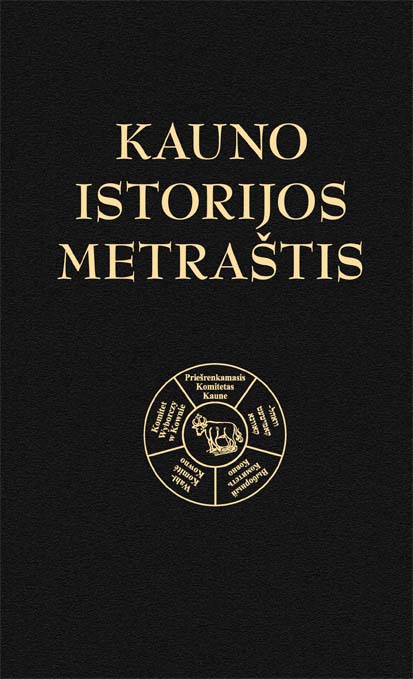Fundatoriai Masalskiai ir Kauno bernardinės
Fundators the Massalski Family and the Bernadine Nunnery of Kaunas
Author(s): Vaida KamuntavičienėSubject(s): History, Cultural history, 17th Century
Published by: Vytauto Didžiojo Universitetas
Keywords: Kaunas Bernardine nuns; Aleksander Massalski; Apolonia Massalska; Klara Massalska; Foundation;
Summary/Abstract: Kaunas Bernardine Nunnery was founded by Apolonia and Aleksander Massalski, who allocated all their property to it, because their only daughter Klara became a Bernardine nun. The foundation of Kaunas Bernardine Nunnery was announced in 1618, and it was finally implemented after the death of both fundators in 1643. The present article examines Apolonia Massalska's last will and Aleksander Massalski's funeral sermon, which allow us to familiarise with the fundators better. The establishment of the Bernardine Nunnery was a gradual process. It was necessary to form a community and build a nunnery and a church complex in parallel. The main construction lasted for a decade, from 1624 to 1634. During this period, St. Trinity Church with five altars was built, and the fundators were buried in the basement, under one of the altars. The complex was surrounded by a fence, which is a prerequisite for a cloistered community. This changed Kaunas City and the access to its main Town Hall Square. The manors of Zapyškis and Dobravolė provided by the fundators and several brick buildings with some land in Kaunas near the Town Hall Square, etc. allowed the Bernardine nuns to acquire solid material possessions constantly supplemented by the dowries of the entrants. Two nunneries – Bernardine and Benedictine – were founded in Kaunas at a very similar time, in the first half of the 17th century. The fundators of both nunneries, the nobles Massalski and Skorulski, were relatives and cooperated together. This highlights the piety tradition of the society at that time and the community of Kaunas City and district (powiat) affected by the reform of the Council of Trent.
Journal: Kauno istorijos metraštis
- Issue Year: 2020
- Issue No: 18
- Page Range: 7-21
- Page Count: 15
- Language: Lithuanian

